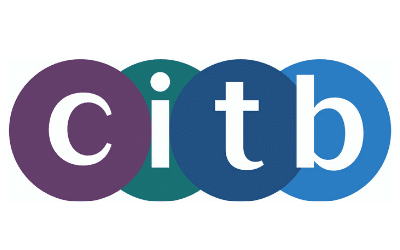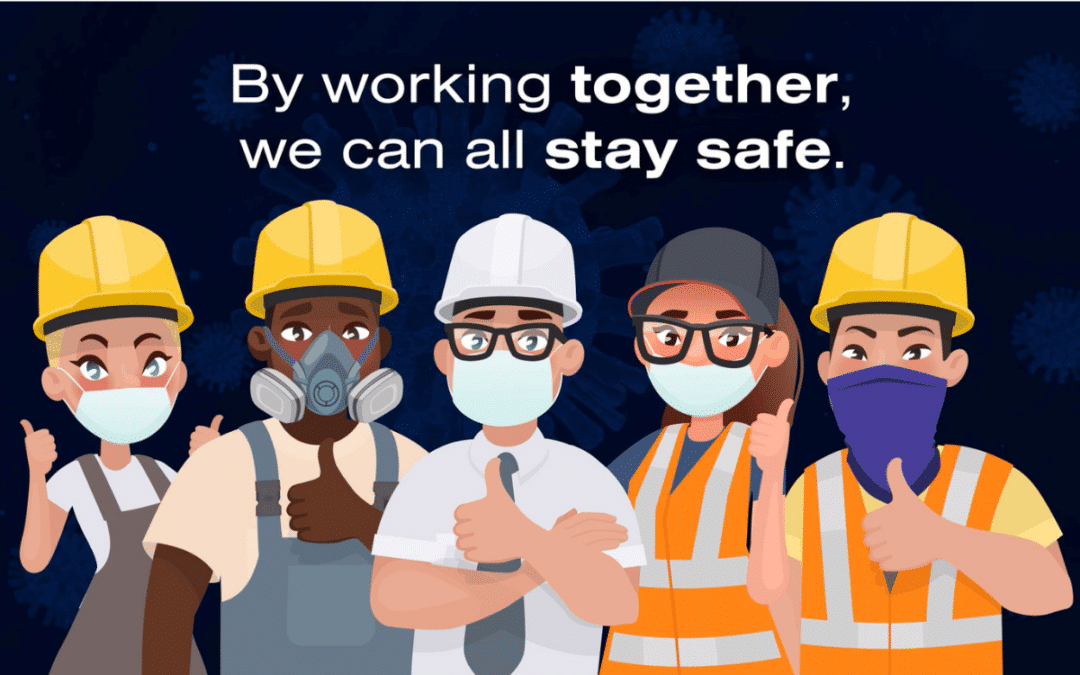With essential construction work set to continue during the latest lockdown, FIS has helped the Construction Industry Coronavirus (CICV) Forum create a new face mask campaign that urges operatives to make a safe start to 2021.
The unique collective has launched an animation and downloadable infographic to remind workers that it’s vitally important to help protect everyone by following the rules and using the right face covering in the right way.
Headlined Mask for Task: Cover for Covid, the initiative emphasises that workers should wear the appropriate respirator or mask for each task and that a face covering of suitable material should be worn when moving around site.
It also gives specific instructions on how to – and how not to – wear face coverings as well as instructions for taking care of personal protective equipment, such as storing masks in a sealable bag when not in use.
The material was initiated through the FIS H&S Working Group and developed by Iain McIlwee, FIS Chief Executive, in partnership with Rebecca Crosland, Health and Safety Adviser at the Building Engineering Services Association and Chair of the Forum’s Health and Safety sub-group, and Iain Mason, Director of Membership and Communications at SELECT and Chair of the Forum’s Communications sub-group.
Iain McIlwee said: “Since the CICV Forum was established, it has played a key role in creating engaging animations and infographics that have proved effective tools and helped deliver essential messaging to an extremely wide audience.
“The new animation is designed to be shared on social media and the poster can be downloaded free of charge here. Both reinforce the responsibility that everyone in construction shares to make sure that they use the correct face covering for the correct situation, worn in the correct manner.”
Rebecca said: “One of the most direct ways of staying safe is to ensure correct mask use, which this latest infographic and animation promotes. The information is easy to follow and will help operatives protect themselves and their colleagues, customers, friends and family.”
As the industry picks up tools again after the festive break, the Forum is also reiterating its latest guidance on practical measures that workers can follow to protect themselves and their colleagues, customers, friends and family.
Driving home the message that we are In This Together, the Forum is reissuing its suite of guidance that outlines safety during domestic projects, guidance on returning to work safely, the importance of physical distancing outside work and giving contractors space to carry out essential work.
Iain Mason said: “With essential construction work being allowed to continue during lockdown, it is incumbent on everyone working in the sector to ensure that they are operating safely, whatever their capacity.
“That’s why we are also stepping up our full range of social media messaging about travel, social distancing and domestic work to ensure everyone is clear on exactly what behaviours are required at all times.”
Made up of trade associations, private companies and professional bodies, including the FIS, the Forum was set up in March 2020, since when it has drawn on the collective expertise of its members to maintain a steady supply of information and practical advice to the sector.
- Watch the animation here and download the infographic here.





